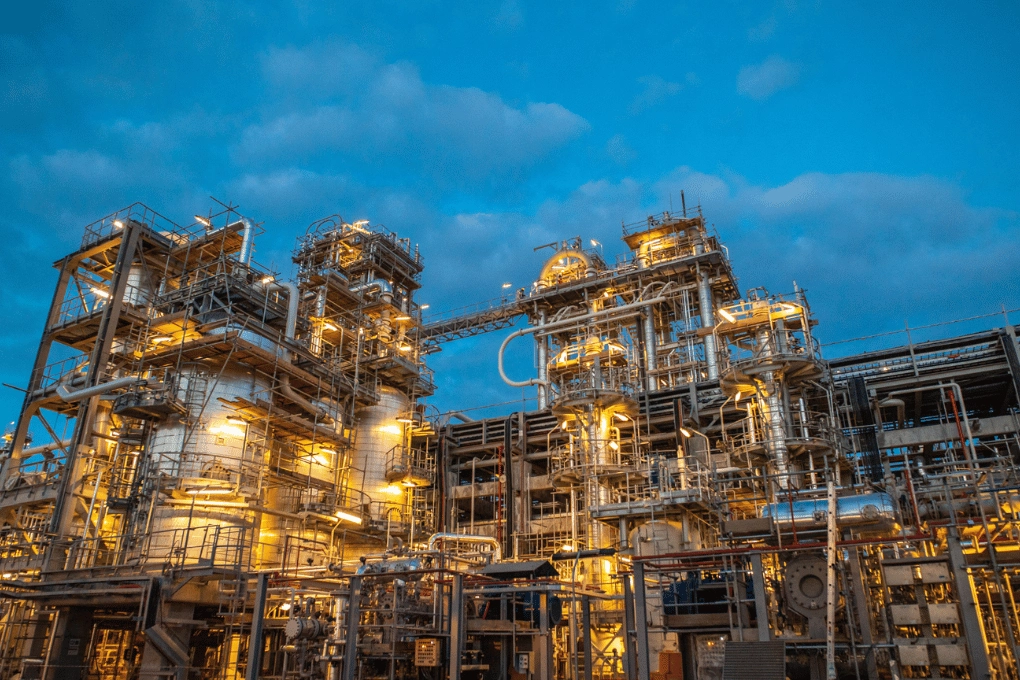The Oil & Gas Processing: Foundations & Principles diploma is designed to equip engineers with a thorough understanding of essential processes, equipment, and safety protocols in the oil and gas industry. This program provides professionals with the practical knowledge necessary for field operations, maintenance, and troubleshooting, ensuring they are fully prepared to meet industry requirements.
The course comprises 32 detailed modules that cover fundamental principles, process technologies, equipment selection, and best operational practices. Participants will delve into topics such as fluid dynamics, rotating and static equipment, heat transfer systems, process instrumentation, and safety measures. Special attention is given to process flow diagrams (PFDs), piping and instrumentation diagrams (P&IDs), process control, pollution management, and hazard prevention.
Designed to bridge the gap between theoretical concepts and real-world applications, this program is ideal for engineers, technicians, and industry professionals looking to advance their knowledge in oil and gas operations, refinery processes, and petrochemical production. Upon completing the course, participants will have a strong foundation in process engineering, enabling them to make informed decisions, enhance plant performance, and maintain high safety and environmental standards.
Course Features
- Lectures 32
- Quiz 0
- Duration 25 hours
- Skill level All levels
- Language English
- Students 0
- Assessments Yes
- 1 Section
- 32 Lessons
- 25 Hours
- Course Modules:32
- 1.1Overview of Oil & Gas Industry
- 1.2Crude oil chemistry and gases behavior
- 1.3Basic of petroleum industry
- 1.4Fluid flow and fluid properties in oil and gas industry
- 1.5Fundamentals of Equipment selection and operation in Oil & Gas Industry
- 1.6Static and Rotary Equipment (Process Point of View)
- 1.7Basic of pump technology, operation, performance
- 1.8Steam traps, pipelines & steam generation system
- 1.9Heat exchangers operation, design, maintenance and troubleshooting
- 1.10Gas compressors operation, design and troubleshooting
- 1.11Basics of Rotating Equipment Operation & Maintenance
- 1.12Fired heater operation, selection, design and troubleshooting
- 1.13Heat transfer Equipment operation, start up, Commissioning (Heat Exchanger, fired Heater and condenser)
- 1.14Fundamentals of field Instrumentation and automatic Control
- 1.15Compressors & Turbines Operation-Maintenance & Troubleshooting
- 1.16Process measurements (level, flow, pressure, temperature)
- 1.17PFD, P&ID …. Process drawing reading,
- 1.18Fundamentals of distillations in oil and gas industry
- 1.19Relieving & Flare system operation
- 1.20Valve types and selection
- 1.21Fundamentals of corrosion and corrosion control in oil and gas industry
- 1.22Waste and Oily Water Treatment
- 1.23Hydrogen Sulphide (H2S) Gas Awareness Program
- 1.24Flow diagram & control System Fundamentals (PID, PFD, UFD….)
- 1.25Process safety engineering and LOPA analysis
- 1.26Basic Gas Chromatography – Principles and Applications
- 1.27Petroleum oil and gases waste and disposal
- 1.28Pollution prevention and production cleaner for oil and gas industry
- 1.29Closed drain and hot oil system
- 1.30Fuel gas, instrument air, nitrogen and utilities
- 1.31Steam Boiler Operation & Maintenance
- 1.32Process Operations for Technicians
Target audiences
- 1. Engineers & Technical Staff :Process, mechanical, chemical, and production engineers seeking a deeper understanding of oil and gas processing.
- 2. Plant Operators & Technicians: Personnel responsible for day-to-day operations, equipment maintenance, and troubleshooting in refineries, gas plants, and petrochemical facilities.
- 3. Maintenance & Reliability Teams:Professionals involved in ensuring the efficiency, reliability, and safety of rotating and static equipment.
- 4. Instrumentation & Control Specialists: Engineers and technicians focusing on process control, safety systems, and automation in oil and gas plants.
- 5. HSE & Process Safety Professionals: Individuals working in health, safety, and environmental roles, looking to strengthen their knowledge of risk management, corrosion control, and process safety.
- 6. Fresh Graduates & Early-Career Engineers:Those looking to build a strong technical foundation in oil and gas processing and gain insights into industry operations.


